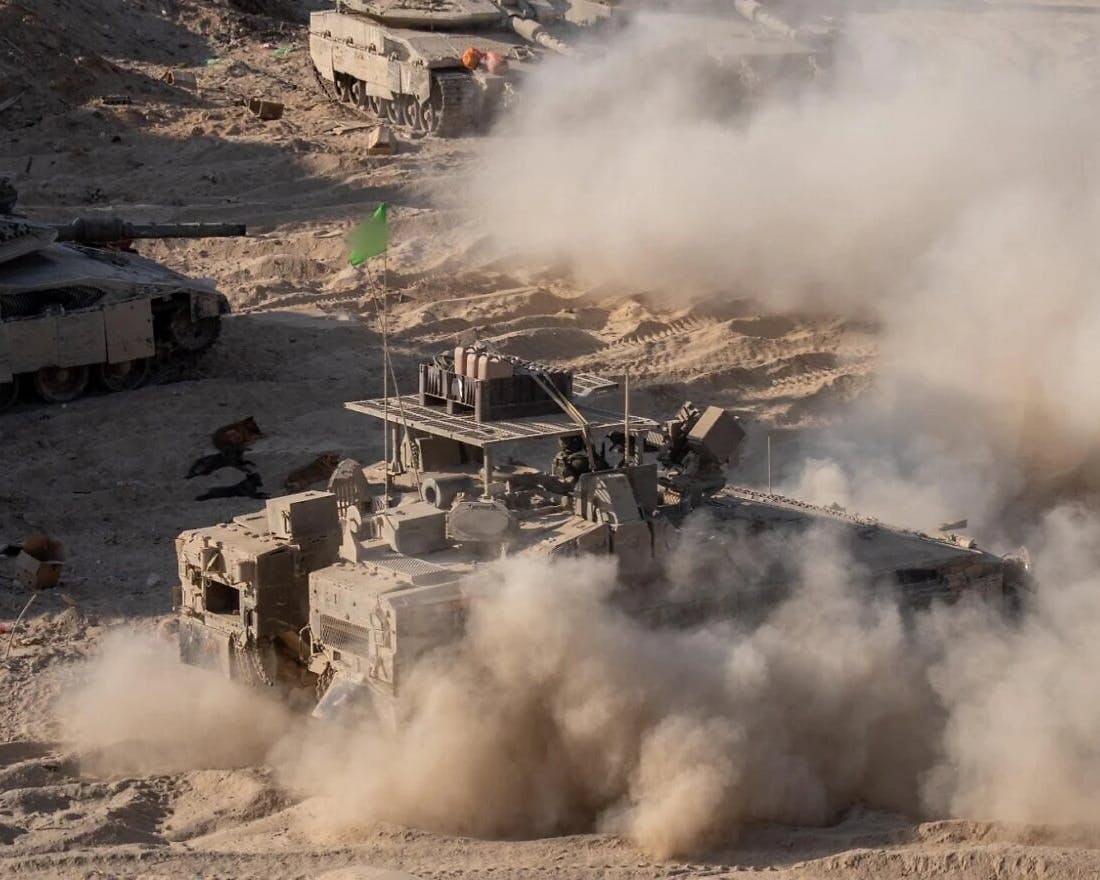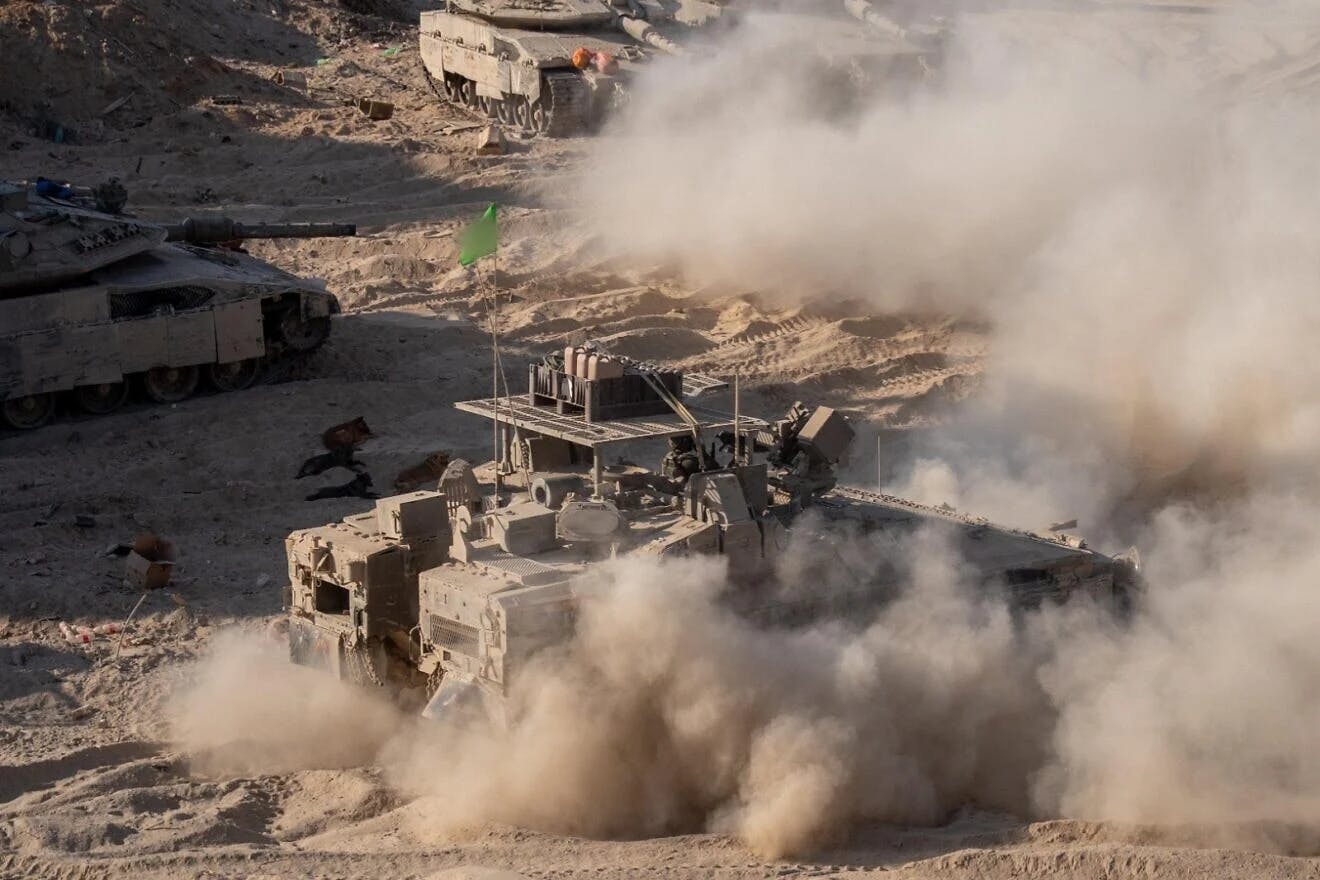Israel at a Crossroads in Gaza: A Deal or a New Military Phase?

Wednesday, 2 July 2025 | With the direct military confrontation with Iran complete for now, Israel’s strategic focus has pivoted back to the unresolved war in Gaza, where Israel’s Security Cabinet is facing a historic crossroads.
According to recent reports, the Israel Defense Forces presented the Security Cabinet with two primary options: Pursue a comprehensive hostage deal that would likely require ending the war and leaving Hamas partially intact or embark on a new, highly aggressive phase of the ground operation to fully dismantle the terror group and take over the entire Gaza Strip.
This critical decision point is being shaped not only by the tactical situation in Gaza but also by a newly strengthened strategic alignment between Jerusalem and Washington. The successful joint defense against Iran has solidified the US-Israel partnership, creating what Israeli Prime Minister Benjamin Netanyahu called on June 29, during a visit to a Shin Bet [Israeli internal security] facility, “many opportunities now, following this victory. First of all, to rescue the hostages.”

Col. (ret.) Amit Assa, a former senior member of the Shin Bet with more than 30 years of experience, told JNS that he believes all of Israel’s actions are now being conducted in concert with the administration of US President Donald Trump.
“When Prime Minister Netanyahu comes to the security cabinet, he comes with an agenda already formulated between him and Trump regarding how to handle the Gaza Strip,” Assa said. “Trump is losing patience with what is happening in Gaza and it’s stuck like a bone in his throat in the context of the entire Middle East. It’s stuck in the context of the Abraham Accords he wants to advance with the Saudis, with the Emirates and even bringing the Syrians into the matter.”
Assa argued that this alignment will likely lead to a new, aggressive military phase aimed at achieving three goals articulated by Trump: Making Gaza “hell” for terrorists, encouraging voluntary migration of Gazan civilians and returning all Israeli hostages.
He added that this could see a change in Israeli strategy away from broad negotiations involving Hamas overseas and towards creating localized hostage situations with terrorists still holding some 50 Israeli hostages, 20 of whom are believed to be alive.
“This will likely be an intense military action,” Assa explained. “Its goal will be to move Gazan civilians out of operational areas as much as possible, to cordon off specific territories where we know the hostages are located, and with this cordon, to begin to negotiate. What I call a hostage-rescue event negotiation. It will no longer be a general hostage event.”
Assa criticized the publication of comments by IDF Chief of Staff, Lt. Gen. Eyal Zamir, who reportedly told the Cabinet that the military was approaching the realization of its goals in Gaza. He asserted that this “signals to Hamas that the military is stopping, so why should Hamas make an effort? Hamas would then wait patiently since the Israelis anyway want a ceasefire.”
Assa was also critical of the chief military prosecution, which ruled that the IDF must enable trucks to enter northern Gaza so that civilians who remain in the north of the Strip receive aid, describing the decision as an error.
Northern Gaza currently lacks the Israel-backed Gaza Humanitarian Foundation aid distribution centers, which are secured by the IDF. “From a military perspective, this is a mistake, because if we designated this ahead of time as a military zone and instructed the population to evacuate, and it does not evacuate, that is its problem,” he argued.
According to media reports from a recent Security Cabinet meeting, the IDF chief warned ministers that continuing the broad military campaign was now directly endangering the lives of the remaining hostages.
Ben Shabbat’s Take
Meir Ben Shabbat, a former Israeli national security adviser and head of the Misgav Institute for National Security and Zionist Strategy, framed the core dilemma facing the Security Cabinet. The choice, he argued, is not simply “hostage release versus ending the war,” but rather “hostage release versus preserving Hamas.”
This, he said, is the implication of an overall deal for the release of all hostages in line with conditions that Hamas is demanding.
These conditions, Ben Shabbat told JNS on Tuesday, include a complete cessation of combat with international guarantees, withdrawal to the October 6, 2023, lines, the rebuilding of Gaza and the release of Palestinian security prisoners.
“While the political and defense leadership of Israel are at a crossroads regarding maneuvers in Gaza, there is great importance to knowing the factual figures on the situation of the enemy, and the assessment of its ability to recover,” he said.
Ben Shabbat stated, “The blow that Hamas took from Israel is indeed severe, but it is not mortal and not irreversible.”
“Hamas’s ability to pose an immediate significant threat to Israel in terms of rocket fire or a ground attack in the style of October 7th has probably been denied. It has lost many of its personnel, its means of combat and production, but one should not learn from this about its recovery capacity,” Ben Shabbat warned.
“Hamas is still the main power in Gaza. Its fighters and leaders operate mainly in tunnels, take few risks, act in a guerrilla-like manner when opportunities arise, and wait for the moment they can safely emerge above ground,” he added.
Ben Shabbat argued that if Hamas’s demands for a complete end to the war and IDF withdrawal are met, its remaining capabilities, control over civilian aid, and broad public support “will allow it to rebuild its capabilities.”
Hamas’s overseas leadership remains functional and is continuing to manage political and propaganda activities, recruit resources, and plan for the day after the war, he stated.
“The remaining abilities in its hands, its ability to control civilian aid going into the Strip (even if only partially) and the broad support it enjoys from among the public in Gaza, will allow it to rebuild its capabilities, especially if its demands in the context of an agreement are met.”
As such, Ben Shabbat concluded, the war goals set by the Israeli government are the right goals, but they need to be achieved in full.
(This article was originally published by the Jewish News Syndicate on July 1, 2025. Time-related language has been modified to reflect our republication today. See original article at this link.)
https://www.jns.org/israel-at-a-crossroads-in-gaza-a-deal-or-a-new-military-phase/
Related Resources

Discover Your Purpose and God’s Heart For You
In today's divided, turbulent world, it's essential for the Church to rediscover God's heart. Our free e-book, authored by a seasoned expert with three decades of experience in Israel, delves deep into the teachings of Jesus (Yeshua) to reveal God’s principles of love and purpose. Learn how embracing these truths can bring significance and impact to your life, even amidst chaos. Subscribe now to receive your free copy and embark on a journey of transformation.




